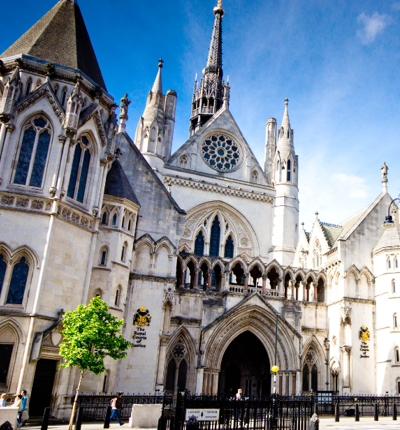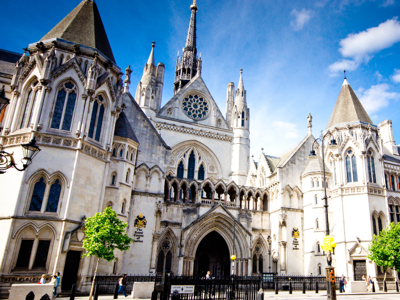
United Nations’ letter to European Commission over UK’s exclusion from Lugano Convention
International human rights lawyers have welcomed a move by the United Nations Working Group on Business and Human Rights (UN) to ask the European Commission (EC) to justify its position on excluding the United Kingdom (UK) from the cross-border legal cooperation international treaty, the “Lugano Convention”.
Posted on 04 July 2023
The international convention is vital for enabling victims of human rights abuses or environmental damage to bring legal action against multi-national corporations in the country where their head offices are based.
Before Lugano the common law forum non conveniens rule determined where a case could be heard. An English company being sued in England about environmental damage it had caused in a third country could argue that the third country is the “convenient” place to hear the case, even if the reality on the ground would make such a case impossible.
In practice, this defence can be used by wealthy corporate defendants to delay proceedings for years, increasing the cost and complexity of a case, and preventing victims of alleged abuse from obtaining justice.
This can result in tragic consequences. For example, in Lubbe & others v Cape PLC (2000) 7,500 South African asbestosis victims had to fight their case on jurisdiction all the way to the House of Lords (what is now the Supreme Court) before the UK courts ruled that they could not get justice in South Africa. Over the three years it took for the issue to be resolved 1,000 of the victims had died.
If a defendant succeeds in a forum non conveniens challenge, then victims may be forced to bring their claim in a jurisdiction where no-win-no-fee agreements are unlawful and there is no legal aid, meaning that they will lack representation, despite business and human rights cases being technically and legally complex and against extremely well-resourced Defendants.
The Lugano Convention prevents defendants from arguing forum non conveniens. This meant that victims of human rights abuses by British companies operating abroad could enforce their legal rights at the High Court in London without lengthy jurisdictional challenges.
Before Brexit the UK had the benefits of Lugano automatically. EU Member States are part of a system of rules called “the Recast Brussels Regulations”, which replicate Lugano. This protection ended after the UK left the EU.
In January 2021 the UK’s formal application to join the Lugano Convention was blocked by the European Commission (EC). This meant that future attempts to bring legal claims against global companies based in the UK could again be thwarted by forum non conveniens.
Now the matter of the UK’s exclusion from the convention has been taken up by the UN Working Group on the issue of human rights and transnational corporations and other business enterprises, who have written to European Commission President Ursula von der Leyen to ask her to justify the EC’s position.
In her letter to the EC President, Chair-Rapporteur of the Working Group, Dr Pichamon Yeophantong, addresses the statement by the EC to refuse the request of the UK to accede to the ‘Lugano Convention’, “where the consequences of such refusal would allegedly have a negative impact on the right to effective judicial remedy of victims of UK business-related human rights abuses committed outside the UK”.
She explains that the convention overcomes the forum non conveniens doctrine “which limits the possibility of victims bringing a legal action in relation to corporate activities outside the state where they live”.
Dr Yeophantong expresses the Working Group’s concern that the EC’s refusal to the UK’s accession to the Convention “may limit the legal accountability of UK domiciled businesses’ behaviour outside the UK” and points to the UN Guiding Principles on Business and Human Rights, unanimously endorsed in 2011 by the Human Rights Council, that states have a duty to protect against adverse impacts caused by business operations and the environment.
Dr Yeophantong posed six questions in her letter, including asking Ms Von der Leyen:
- To explain how its refusal to allow the UK to join the treaty conforms to the EU’s support for the UN Guiding Principles;
- For clarification on the processes within the EU which have led to the UK being refused accession to the Lugano Convention;
- What process will be used to consider the UK’s request to re-join Lugano, and whether the European Commission is the competent authority to oversee this process; and
- For an explanation how the Hague Conventions can provide the same protection as the Lugano Convention from the behaviour of UK businesses operating in other countries.
Before January 2021, Leigh Day’s international department successfully held UK companies to account for human rights abuses or environmental damage caused by their operations in other parts of the world through the High Court in London. Since the UK has been refused access to the Lugano Convention, companies are now increasingly hiding behind the forum non conveniens principle to make such claims more protracted, complex and expensive.
Leigh Day international team partner Daniel Leader said:
“If the UK is allowed to join the Lugano Convention then it will make a huge difference for access to justice for victims of human rights abuses committed by English companies abroad.
“We hope that this letter from the UN Working Group will cause European Commission’s to rethink their position on Lugano. At a time when there is an increasing focus across Europe on providing access to justice for victims of corporate wrongdoing, the Commission needs to understand that its current policy is actually making it much harder to hold UK corporations to account.”

Daniel Leader
International human rights, business human rights and corporate accountability lawyer

Nigeria Bodo community resists attempts by Shell to strike out their claim for oil spill clean-up
On Tuesday 23 May 2023, the High Court will hear an application by the Bodo Community in Nigeria to proceed to trial with their claim for clean-up of oil spills from Shell pipelines in 2008.

Court rules United Nations agencies can intervene in Kabwe lead poisoning class action
The High Court in Johannesburg has today ruled that a group of UN Special Rapporteurs and Working Groups can intervene in a dispute over the authorisation of a class action against Anglo American South Africa on behalf of victims of lead poisoning around the Kabwe mine in Zambia.

